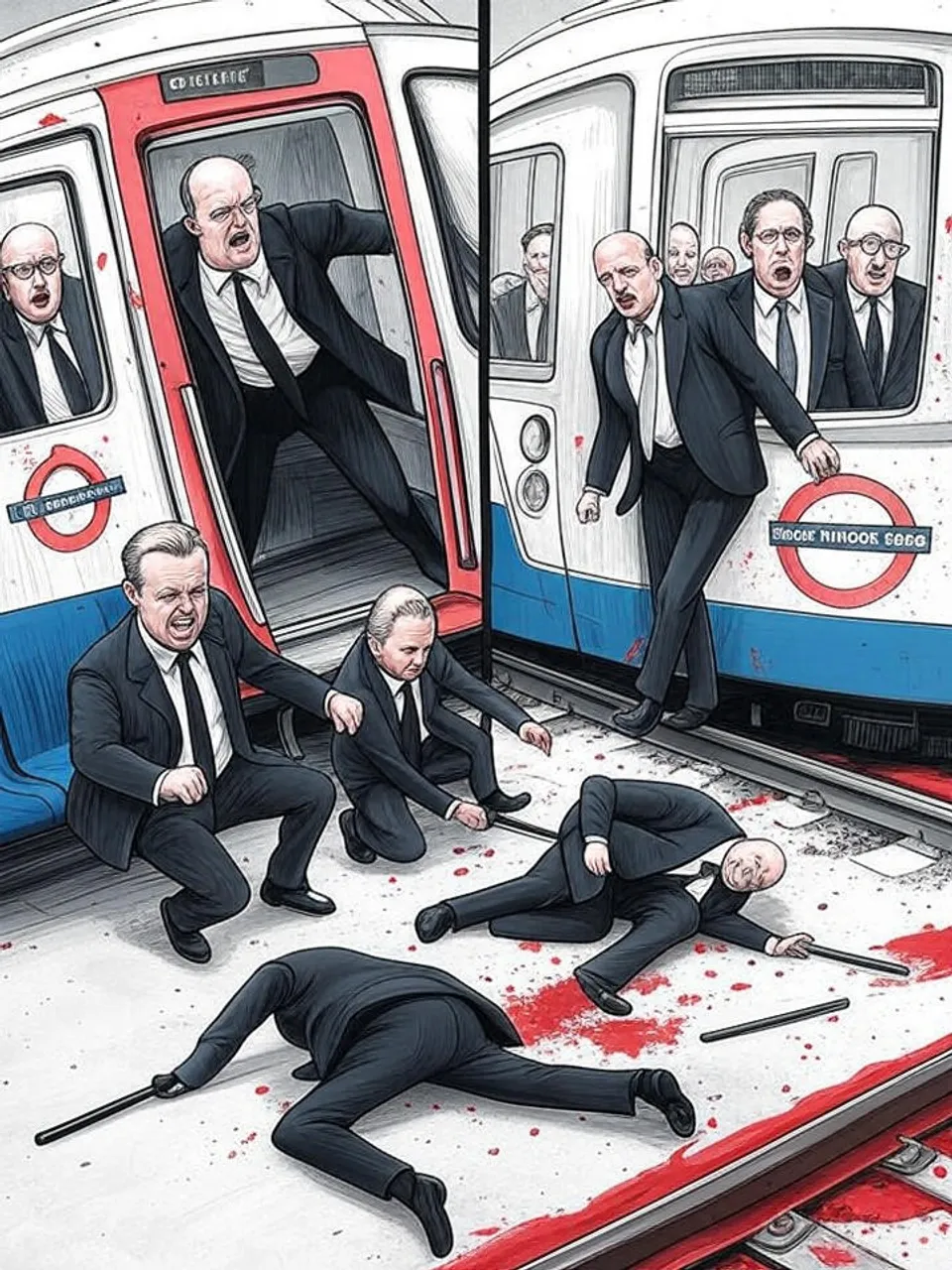Dual Train Blades: One Day's Assault on Britain's Commutes

11 Wounded in Hours-Long Rampage Highlights Stagnant Security Measures
A single knifeman's attacks on two trains injure 11, exposing persistent underfunding and unfulfilled pledges that turn public transport into risk zones across governments.
A single assailant wounded 11 people across two trains in one day, turning routine commutes into scenes of chaos.
Anthony Williams, 32, faces 11 counts of attempted murder for the attacks. The first occurred early morning on a DLR train at Pontoon Dock station, where a victim suffered facial injuries from a knife. Hours later, on a 6:25pm LNER service from Doncaster to London King’s Cross, Williams stabbed 10 passengers and a crew member during a 14-minute rampage, forcing the train to divert to Huntingdon.
Police arrested Williams eight minutes after the first emergency call. Armed officers detained him and another man, though the latter faced no charges. Five victims left hospital the next day; one remains in critical condition.
British Transport Police prioritize the investigation, reviewing CCTV and exploring linked offenses. Counter-terrorism units ruled out ideological motives. The Crown Prosecution Service authorized charges based on evidence, stressing the case’s ongoing nature.
LNER’s managing director praised the driver’s quick diversion and crew’s bravery, crediting an Iraq war veteran for saving lives. The operator vows cooperation with authorities and support for affected staff and passengers. Yet this response follows a script repeated in prior incidents.
Knife attacks on UK public transport have escalated over the past decade. In 2023, British Transport Police recorded 1,200 assaults, a 20% rise from 2019. Stabbings alone numbered over 300, with trains and stations as primary sites.
Successive governments pledged remedies. The 2019 Conservative manifesto promised 20,000 additional police officers, including transport specialists. Labour’s 2024 platform echoed this with commitments to “reclaim our streets” through community policing.
Outcomes diverge from rhetoric. Transport officer numbers stagnate at around 3,000, below pre-2010 levels despite population growth. Budget cuts since 2010 reduced overall police funding by 19% in real terms, per the Institute for Fiscal Studies.
This Huntingdon rampage mirrors patterns in recent cases. Just months ago, a knife attack on a Leeds train injured nine, with delayed officer response cited as a factor. Earlier that year, a Manchester stabbing spree on rail lines left multiple victims bleeding without immediate intervention.
Mental health intersects with these failures. Williams’ background remains undisclosed, but NHS data shows 1.6 million people await mental health treatment, with crisis services overwhelmed. Knife possession charges against him highlight lax enforcement; stop-and-search operations dropped 50% since 2010 peaks.
Public transport ridership has rebounded post-pandemic, reaching 90% of pre-COVID levels by 2024. Yet security investments lag. The Rail Safety Strategy of 2021 allocated £100 million for CCTV upgrades, but deployment covers only 40% of network infrastructure.
Citizens bear the costs. Commuters now factor violence into travel choices, with 25% avoiding trains after dark, according to a 2023 YouGov poll. Economic ripple effects include lost productivity from injuries and fear-driven absenteeism.
Deportation and vetting play no role here, as Williams appears British-born. The incident exposes domestic policy voids, not just migration strains. Knife amnesty programs since 2006 have surrendered 150,000 blades, yet street availability persists through online sales and urban markets.
Cross-party accountability evaporates. Conservative home secretaries from 2010-2024 oversaw funding squeezes; Labour’s recent tenure inherits the same strained systems without swift reversals. No minister has resigned over transport violence spikes.
Functional governance would deploy preventive measures: mandatory blade detectors at major stations, funded by ring-fenced transport levies. It would enforce officer quotas with penalties for shortfalls. Instead, reactions stay reactive, treating stabbings as isolated crimes rather than systemic signals.
Ordinary travellers pay the price. A nurse en route to a shift or a father heading home becomes collateral in institutional neglect. This day of dual attacks reveals how Britain’s safety net frays, leaving rails as exposed frontiers.
The Huntingdon stabbings cement a trajectory of public realm erosion. Violence normalizes on transport arteries that once symbolized national connectivity. Under every administration since the millennium, promises yield to inertia, diminishing the security citizens expect from a functioning state.